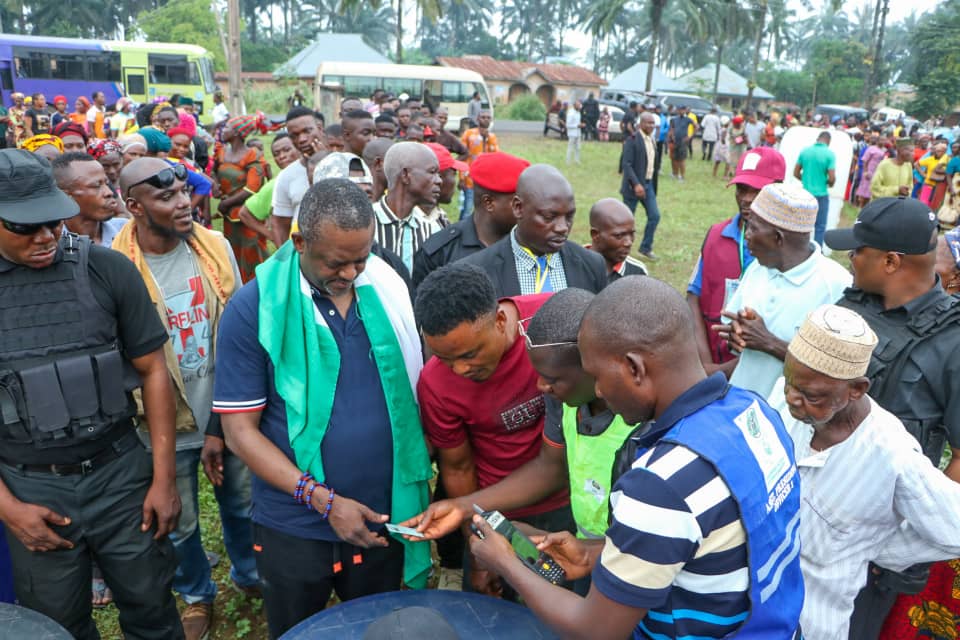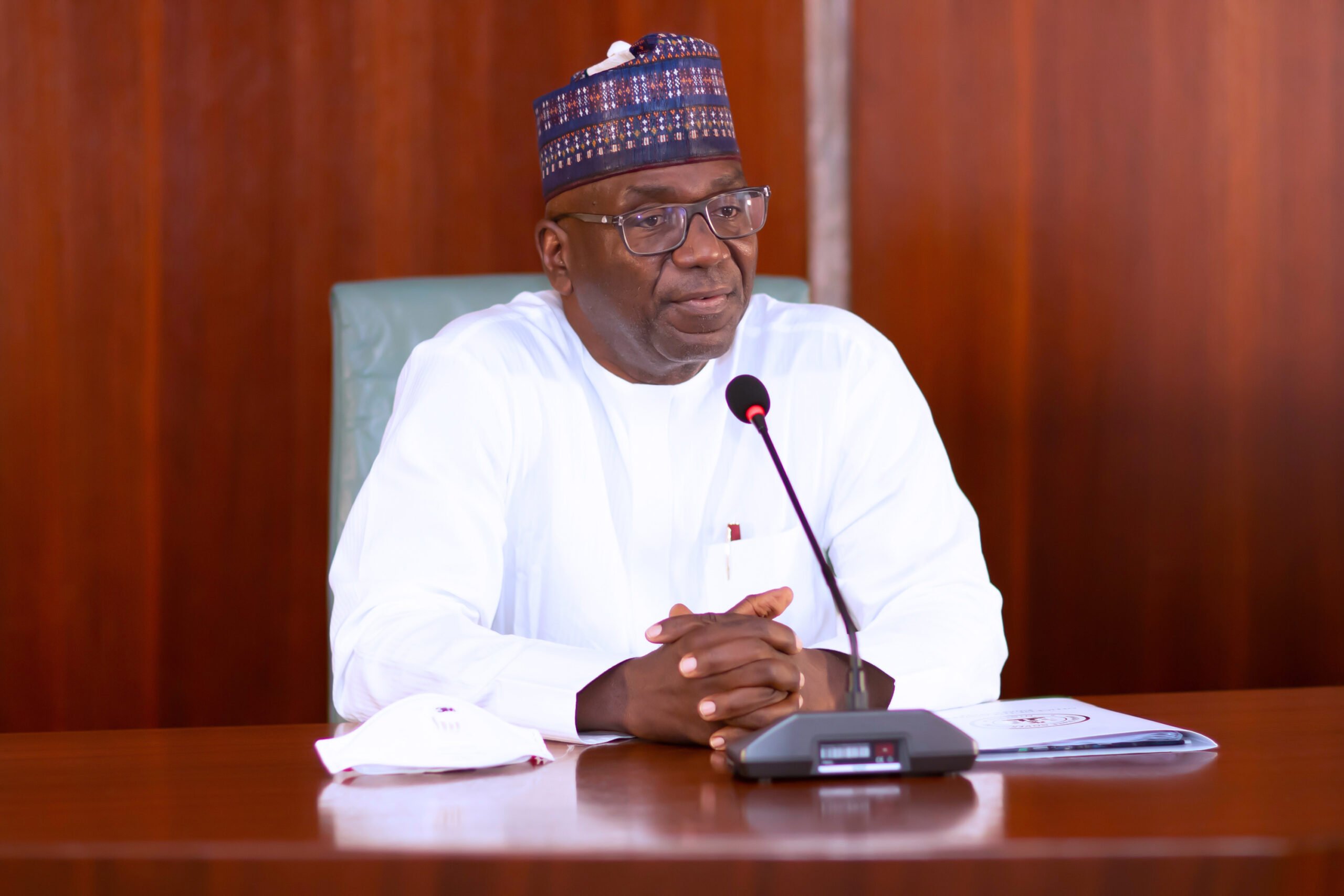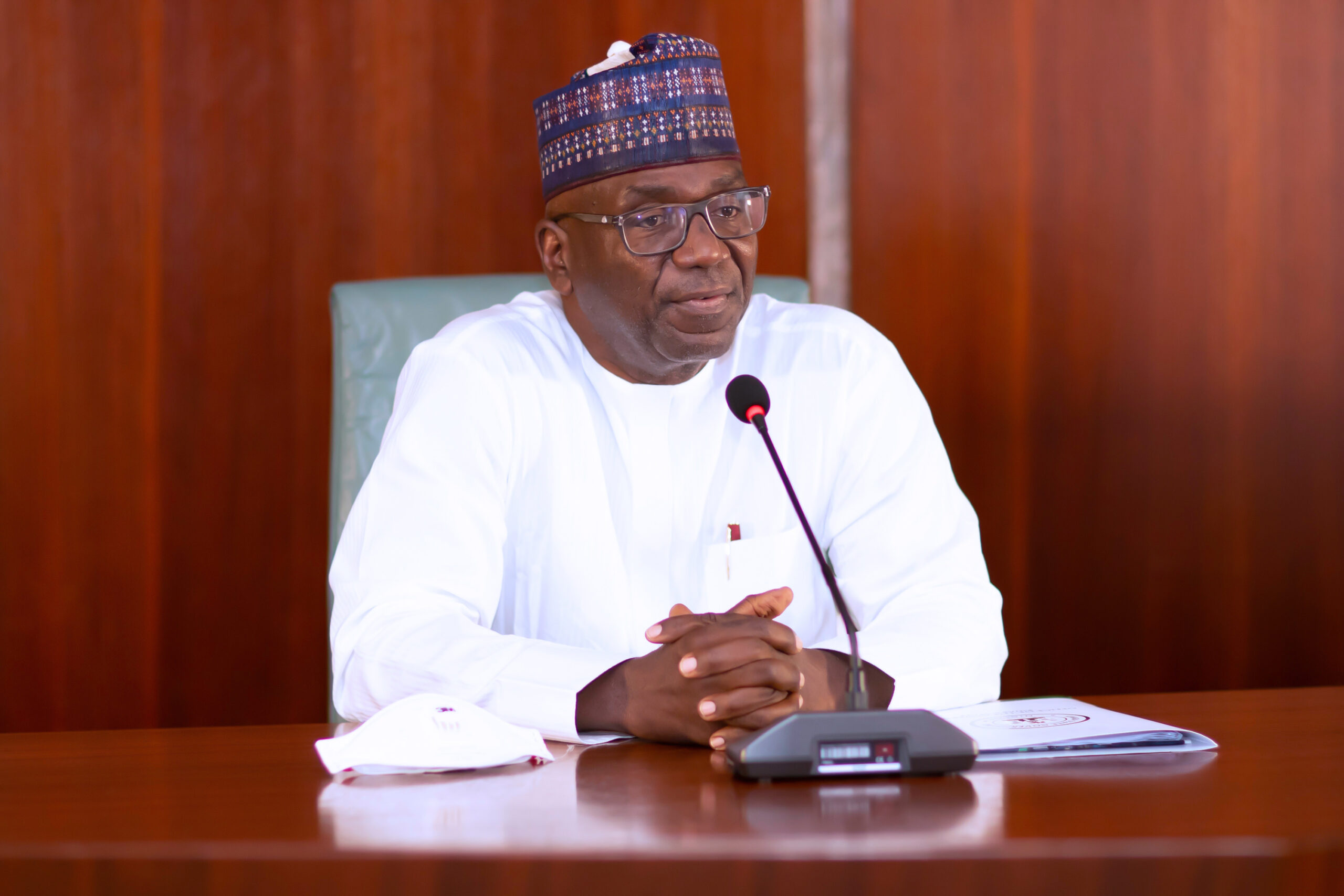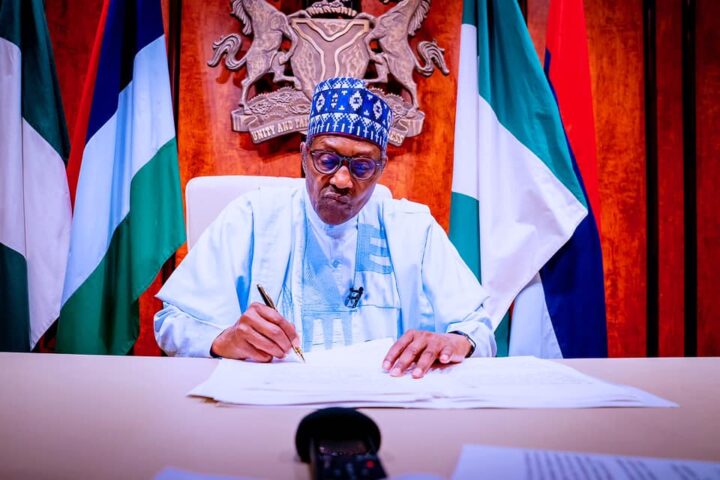BY ALEX OTTI
“A vote is like a rifle: its usefulness depends upon the character of the user.”
― Theodore Roosevelt
“In a society governed passively by free markets and free elections, organised greed always defeats disorganised democracy.”
― Matt Taibbi, Author and Philosopher
There are various forms of government. Some of the more well-known ones are Absolute Monarchy (as in Brunei and Saudi Arabia), Constitutional Monarchy (as in the UK and Japan), Theocracy (as in Iran and soon the Taliban-led Afghanistan), and Military Dictatorship (as in Myanmar and North Korea). There is also Democracy, which is popularly defined as government of the people, for the people by the people.
Advertisement
In each of these situations, legitimacy comes, either from the force of coercion or the will of the people. In the final analysis, however, the only form of government that survives and flourishes is that which flows from the mandate of the people. Any society where leadership is installed by means other than holding the mandate of the people is on its way to perdition. In a democracy, legitimacy is conferred through the electoral process and it is the candidate that garners the highest number of votes in the election that wins.
It is clear that many parts of the world have got their electoral process right and can say with a very high degree of certainty that the outcome of their elections represents the wishes of majority of the people. Many hitherto authoritarian countries now see election as a way of life. Russia is a striking example. A few decades ago, the Soviet bloc had countries where Democracy was considered an anathema. Today, the case is different. Latin America is fast turning into a sea of democratically elected governments even though there are still signs of dictatorship among some of the countries there. Even China is adopting revised forms of democracy that suit her cultural and political antecedents. They have also shown that regardless of what they choose, it has served them well on the economic front as it has helped to take millions of Chinese out of poverty.
Unfortunately, that cannot be said of most parts of Africa. Sadly, Nigeria is a country that has consistently failed the test of credible and transparent elections. From the 1960s when the country’s elections were marred by rigging, manipulation and violence, through the 80s and 90s up to this moment, the country has witnessed one tainted election after another. With the return to civilian rule in 1999, the electoral process seemed to get worse with every successive election season. It must be noted, however, that in 2006, the then Chairman of Independent National Election Committee (INEC), Prof. Maurice Iwu, had proposed electronic voting for the 2007 general election. Politicians at that time screamed blue murder at the suggestion, arguing that the literacy level of the Nigerian electorate was too low for the adoption of technology. They also insisted that the time between 2006 and 2007 was too short for its implementation. That marked the end of that brilliant idea, which probably came ahead of its time. Ironically, biometric technology was deployed to establish massive election rigging in Ekiti and Osun States in the same 2007, leading to the upturning of those elections by the Judiciary.
Advertisement
It was not until the run up to the 2015 general elections that significant changes were made by the Prof. Attahiru Jega-led INEC. The electoral body introduced the Permanent Voters Cards (PVCs) and Smart Card Readers (SCRs). The idea was to introduce technology into the hitherto manual electoral process. The devices replaced the manual voter’s card and voters register. The details of the voters including biometric data, card holder’s fingerprint and pictures were embedded in electronic chips in the PVC. The PVC and SCR are mainly designed for accreditation, enabling electronic verification of voters and voters’ cards. This immediately streamlined the voters register and eliminated multiple registration and fraudulent representation of voters. This development catapulted the nation into the league of over 25 African countries that were already using biometric and other technologically driven systems at the polls. The introduction of PVCs and SCRs in Nigeria did not go without its fair share of challenges, just like any other technology. The required acquisition of skills for operators was a major issue then and remains till today. The devices were said to have shorter than required battery lives. The card readers were reported to have malfunctioned in several areas leading to provision of back ups or postponement of elections in certain places or resorting to manual accreditation and the use of incident forms in others. The biometric technology, being very sensitive, failed to recognise some genuine voters in some places even though they had genuine PVCs, again defaulting to manual accreditation. The availability of communication networks, or lack thereof, in some locations, particularly in some rural areas was and remains a major threat to the use of this technology. INEC responded to some of these challenges, introducing SCRs that had longer battery life, training its staff on the use of the SCRs, making available back up SCRs, and ensuring that the SCRs were able to search and use available networks in the location and programming the SCR to retain information fed to it even in remote locations and download same to the server once network was detected.
In the 2019 election, the performance of INEC was expected to improve, given the experience it had garnered in 2015. However, this was not to be as INEC encountered another major challenge, namely the legal foundation of the SCR. In 2015, after the pioneering effort to improve the electoral process, the judiciary, in what has been described as excessive reliance on technicality rather than the spirit and intention of the law, held that the card reader was not recognised by the electoral act and that the only way to prove over-voting was with the manual voters’ register. This singular action of the judiciary emboldened election riggers and literally set the hand of the clock backwards, as politicians who fraudulently wrote results, snatched ballot boxes and stuffed them, took over collation centres violently and forced INEC officials to declare them winners, had their results upheld by the courts of the land. Attempts made to amend the electoral act did not succeed until the 2019 election. Given the position of the law, politicians who had control of the instrumentality of violence and compromised INEC personnel simply wrote results and had themselves declared winners in the 2019 election.
Despite all these, it must be noted that during the off-season elections in Ondo State last year, INEC was able to successfully upload the polling unit level results, real time and largely online, to its portal for public viewing. It was also the same case with the Edo election of 2020. According to Prof. Mahmoud Yakubu, the current INEC Chairman, the Commission is committed to expediting the process leading to the deployment of electronic voting machines in the November 6, 2021, Governorship elections in Anambra State. With the recent travails of the electoral act amendment bill at the National Assembly, it remains to be seen if the electoral umpire would continue with its lofty plans. The Electoral Act Amendment Bill 2021 was presented to the National Assembly for consideration recently. This amendment has been coming up at the National Assembly since 2014. Sometimes, the National Assembly would not pass it for assent of the President and sometimes, the President would withhold assent citing different reasons. This time around, the Senate tweaked a section of the Bill. Clause 52(3) of the bill provides that INEC adopts electronic voting and transmission of results where practicable. After debates, Senate amended the clause to include that the National Communications Commission (NCC) would have to confirm availability of communication network to conduct electronic election processes with approval from the National Assembly before INEC could adopt same.
The action of the National Assembly seems to have generated a lot of debate amongst the populace with many groups engaging their National Assembly members, questioning their true intention. Some have faulted the amendment of the bill arguing that the National Assembly has wittingly or unwittingly subjected an otherwise independent body to the whims of the executive, NCC being part of the executive, and that asking that the legislature approves a process which should be seamless is unnecessary.
Advertisement
Matters have not been helped by the seeming political colouration of the debate and votes as members of the ruling party voted for the amendment of the bill while members of the opposition voted against it. It would not be out of place to point out here that the opposition which was the ruling party in 2014 had the opportunity to pass this bill then, but filibustered it, not knowing that a day like this would come when it would be in opposition. Be that as it may, this column is of the strong opinion that politicians should learn to do things right and pass bills that would be in the best interest of the country irrespective of political affiliation. As we have learnt from this bill, you could be in power today and tomorrow, you would be in Opposition. Like it is said, the only permanent thing in life is change.
There are two issues involved in this bill. One is the electronic transmission of results which has dominated most debates. The bigger issue which seems to attract less attention is electronic voting. Separating these two issues would help in forming opinion and testing our preparedness for the process. Electronic Voting involves the deployment of Direct Recording Electronic Voting Machines, which are commonly used in developed countries, or other machines made locally or imported. The machine simplifies the entire voting process from accreditation, through actual voting, sorting, counting, tabulation to compilation of results. Besides seamless election process, it has the added advantage of reducing the cost of elections to the barest minimum. For instance, the cost of printing ballot papers, election result sheets for polling units, wards local governments and states would be saved. We note that the cost of acquisition of the machines and backups for the close to 180,000 polling units in the country would be high.
However, because these machines could be used over many election seasons, the seemingly high cost would pale into insignificance, compared to what is spent now. Besides, other heavy costs like transportation of materials, security and other logistics costs would be minimised if not eliminated.
The most important argument in favour of electronic voting is that it brings greater credibility and transparency to the electoral process. Votes will begin to count, confidence, which had hitherto disappeared from the electoral process, would eventually return and more voter turnout will be recorded. We consider this very important because from the table below, Nigeria has progressively witnessed very low voter turnout, in spite of growth in population and the number of registered voters.
Advertisement
PRESIDENTIAL ELECTION RESULTS (1999-2019)
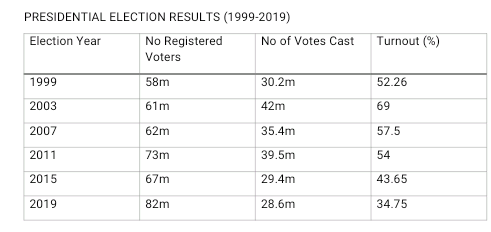
A few things are discernible from the table. The first is that outside 2003 which was obviously an outlier, the country had been witnessing low voter turnout. Again, with technology in 2015, the number of votes cast dropped by a whopping 10m, and voter turnout dropped to about 35% in 2019. This shows the level of voter apathy in the country. In the last Presidential election in the USA, about 67% of registered voters came out to vote. The average voter turn out in the UK is 70% and Ghana recorded a massive voter turnout of almost 80% in the December 2020 election. Studies have shown a positive correlation between credible elections and voter turnout. The more the electorate have faith in the electoral process, the more they will come out to vote and vice versa.
Advertisement
This analysis will be incomplete if we do not acknowledge some of the challenges of electronic voting. Irregular power supply is one, but could be mitigated by providing alternative energy backups; communication network; technical know how; possibility of compromise by staff of the electoral commission and staff of the vendor/Supplier who could manipulate the back-end application; hacking or interception of the system; and faulty or malfunctioning machines. The good news is that if banks and other financial services companies are able to deploy technology and automate their processes including the use of the automated teller machines to dispense cash running into billions of Naira, then INEC should be able to automate the electoral process and mitigate all the identified risks.
It is imperative that the Bill be divided into two parts. The first is the use of PVCs and SCRs for accreditation of voters while the other is the transmission of results from the polling units to the servers, to eliminate manual collation of results. INEC had said that it is already implementing the latter and has the capability to do it nationwide. We should believe them, more so as it has already been demonstrated in some states. Giving approval to this should not be a problem. The second part should be the electronic voting system, which I quite frankly, don’t think we can implement in 2023. However, anybody who stands for credible elections should support INEC to begin the process and if ready could be test-run in 2023 and fully rolled out in 2027. We should never refer INEC to get a certification from its vendor to implement an initiative it has proposed.
Advertisement
We should also be mindful to protect that ‘I’ in INEC, if not in practice, at the minimum, in theory. Finally, we must ensure that our votes count. Anything short of that is a call for brigandage and descent to anarchy..
Alex Otti, Email: [email protected]
Advertisement
Views expressed by contributors are strictly personal and not of TheCable.
